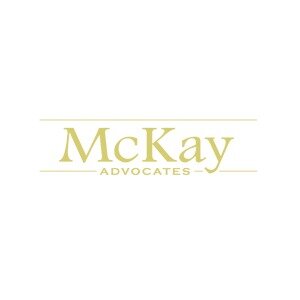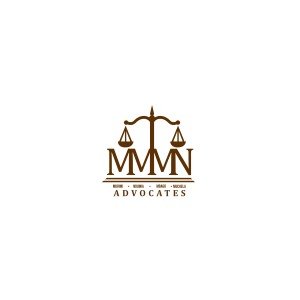Best General Litigation Lawyers in Nakuru
Share your needs with us, get contacted by law firms.
Free. Takes 2 min.
List of the best lawyers in Nakuru, Kenya
About Litigation Law in Nakuru, Kenya
Litigation in Nakuru, Kenya, refers to the process of resolving disputes or enforcing rights through the courts. As one of the key towns in Kenya, Nakuru serves as a hub for both civil and criminal litigation. The legal framework for litigation in Nakuru is governed by the Kenyan Constitution, the Civil Procedure Act, and the Criminal Procedure Code, among other laws. The legal process is adversarial, meaning that parties present their cases to a neutral judge who makes a binding decision. Local courts, including the High Court and the Magistrate Courts, play a crucial role in handling litigation matters within this jurisdiction.
Why You May Need a Lawyer
There are numerous situations where individuals and businesses in Nakuru might require legal assistance in litigation. These can include contractual disputes, property and land issues, family law matters such as divorce or child custody, personal injury claims, and defense in criminal cases. Additionally, businesses may need legal representation in commercial disputes, employment issues, and regulatory challenges. Lawyers are equipped to navigate the complex legal system, offer representation in court, provide legal advice, ensure adherence to proper procedures, and work to achieve favorable outcomes for their clients.
Local Laws Overview
Nakuru, like the rest of Kenya, operates under a common law system influenced by English law but adapted through local statutes. Key aspects of local laws relevant to litigation include:
- The Constitution of Kenya: This is the supreme law providing fundamental rights and freedoms, which can be enforced through litigation.
- The Civil Procedure Act: Governs the procedure for civil litigation, outlining steps for filing suits, conducting trials, and enforcing judgments.
- The Criminal Procedure Code: Outlines procedures for criminal cases, including arrests, charges, trials, and appeals.
- The Evidence Act: Provides guidelines on admissibility, relevance, and evaluation of evidence in both civil and criminal cases.
- Alternative Dispute Resolution (ADR): Encouraged under the Kenyan legal system for resolving disputes amicably and may include mediation or arbitration before pursuing court action.
Frequently Asked Questions
What is the first step in filing a lawsuit in Nakuru?
To file a lawsuit in Nakuru, you must first prepare and file a plaint or petition with the relevant court, outlining the facts, legal grounds, and relief sought.
Can I represent myself in court?
Yes, individuals can represent themselves in court; however, it is generally advisable to seek legal representation to effectively navigate the complexities of the legal system and ensure proper procedure.
How long does litigation typically take in Nakuru?
The duration of litigation varies depending on the complexity of the case, the court's schedule, and the willingness of parties to reach a settlement. Some cases may settle in a few months, while others could take years.
What costs are involved in litigation?
Litigation costs can include court fees, legal representation, expenses for collecting evidence, and potential appeal costs. It is important to discuss fees and cost expectations with your lawyer beforehand.
What if I cannot afford a lawyer?
If you cannot afford a lawyer, you may qualify for legal aid services offered by organizations such as the Legal Aid Department under the Ministry of Justice or other NGOs providing pro bono services.
What is Alternative Dispute Resolution (ADR)?
ADR refers to resolving disputes outside of courts through mediation, arbitration, or negotiation. It is often faster and less expensive than traditional litigation.
Can a case be settled out of court?
Yes, many cases can be settled out of court through negotiation between parties. Settlements can be made at any stage during the litigation process.
What happens if I lose my case?
If you lose your case, you may be required to pay the legal costs of the opposing party. You may also have the option to appeal the court's decision within a specified period.
Is court judgment final?
While a court judgment is binding, it can be appealed to a higher court if there are grounds for appeal such as legal errors made during the trial.
How are criminal cases prosecuted?
Criminal cases in Nakuru are prosecuted by the state through the Office of the Director of Public Prosecutions (ODPP) and involve a structured process of charging, trial, and sentencing if the defendant is found guilty.
Additional Resources
For additional assistance, consider reaching out to the following resources:
- Kenya Law Reports: Offers access to legal reports, case law, and legislation.
- The Judiciary of Kenya: Provides information on court processes, locations, and contacts.
- Law Society of Kenya: Offers a directory of practicing legal professionals and resources on legal practice in Kenya.
- Office of the Director of Public Prosecutions (ODPP): Handles all matters related to criminal prosecutions.
Next Steps
If you believe you need legal assistance with litigation in Nakuru, consider taking the following steps:
- Identify the nature of your legal issue and gather relevant documents and information.
- Consult with a qualified litigation lawyer to assess your case and discuss possible legal strategies.
- Prepare any necessary documents for filing with the court or initiating alternative dispute resolution.
- Attend court hearings or ADR meetings with your lawyer to ensure proper representation and advocacy.
- Consider settlement options to potentially resolve the matter more quickly and cost-effectively.
By taking these steps, you can help ensure that your legal rights are adequately protected and defended in any litigation matter.
Lawzana helps you find the best lawyers and law firms in Nakuru through a curated and pre-screened list of qualified legal professionals. Our platform offers rankings and detailed profiles of attorneys and law firms, allowing you to compare based on practice areas, including General Litigation, experience, and client feedback.
Each profile includes a description of the firm's areas of practice, client reviews, team members and partners, year of establishment, spoken languages, office locations, contact information, social media presence, and any published articles or resources. Most firms on our platform speak English and are experienced in both local and international legal matters.
Get a quote from top-rated law firms in Nakuru, Kenya — quickly, securely, and without unnecessary hassle.
Disclaimer:
The information provided on this page is for general informational purposes only and does not constitute legal advice. While we strive to ensure the accuracy and relevance of the content, legal information may change over time, and interpretations of the law can vary. You should always consult with a qualified legal professional for advice specific to your situation.
We disclaim all liability for actions taken or not taken based on the content of this page. If you believe any information is incorrect or outdated, please contact us, and we will review and update it where appropriate.















